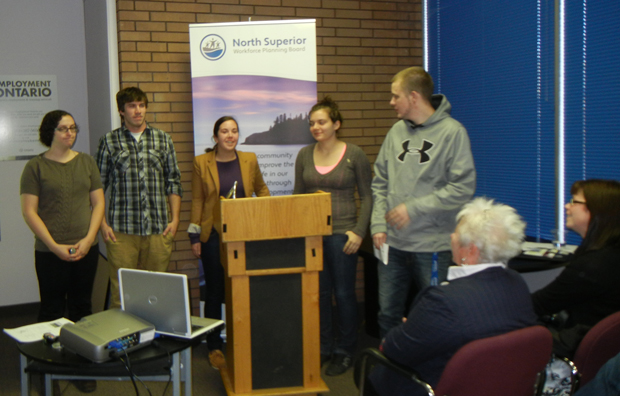
THUNDER BAY – Eating locally grown foods is not only good for you, but according to a new report, scheduled for release in early December, Northwestern Ontario’s local food production sector is having more of an impact on our workforce than one might imagine. In fact, the research demonstrated a multiplier impact of 1.7 on direct jobs in the food production sector in the region.
The study, commissioned through North Superior Workforce Planning Board (NSWPB) and Northwest Training and Adjustment Board (NTAB), sought to assess the current state of food production in each of the three districts in Northwestern Ontario, compare the changes in the sector between 2006 and 2011, and explore both the current and future workforce multiplier effect of local food production.
“Although the sector does not come on the radar of our labour market information in terms of numbers, local knowledge informs us that local food production is having a significant impact on not just our area but across all of Northern Ontario,” says Madge Richardson, Executive Director for NSWPB. “We wanted to find out just how much of an impact this societal trend is having on our workforce, and look at what might be done to further enhance the agricultural sector in our region.”
Full details of the study’s findings will be available upon its release in early December. However, a presentation at the NSWPB Board Office today provided a quick snapshot of what the students discovered. In the Thunder Bay District alone, 2011 saw 717 jobs directly related to the Food Production Sector with projections of 831 by 2017. Across Northwestern Ontario, almost 2,000 jobs directly related to the food production sector are forecast over the next 5 years.
The study was conducted in partnership with the Food Security Research Network (FSRN) and Lakehead University as a CSL (Community Service Learning) activity by the Natural Resources Economics Class under the supervision of Dr. Chander Shahi. Dr. Connie Nelson of FSRN, Dr. Shahi accompanied 15 students who traveled the 3 regions and interviewed food producers and distributors, compiling and analyzing data to ascertain the results. The project marked the first time NSWPB and NTAB were able to use research services provided through students at Lakehead University. “This option presented itself and we decided to give it a shot and are so glad we did. The students were provided real life research opportunities and we were able to obtain an excellent research report at the fraction of the cost of paying a consultation firm. And we kept it local!” Richardson states.
The report will be available for download in early December by visiting www.nswpb.ca.
